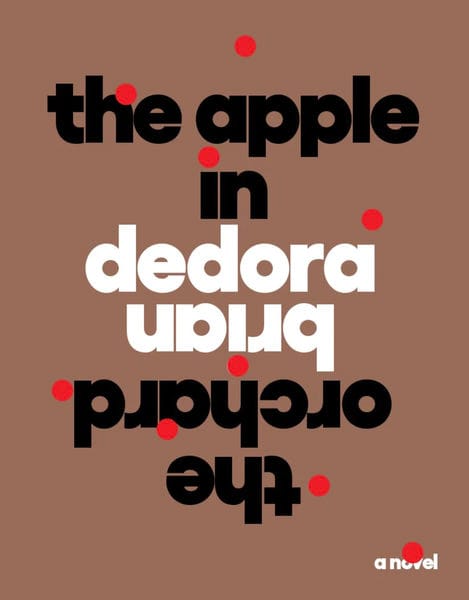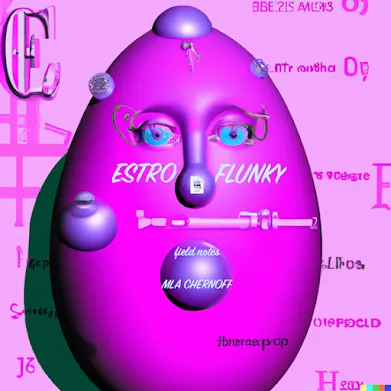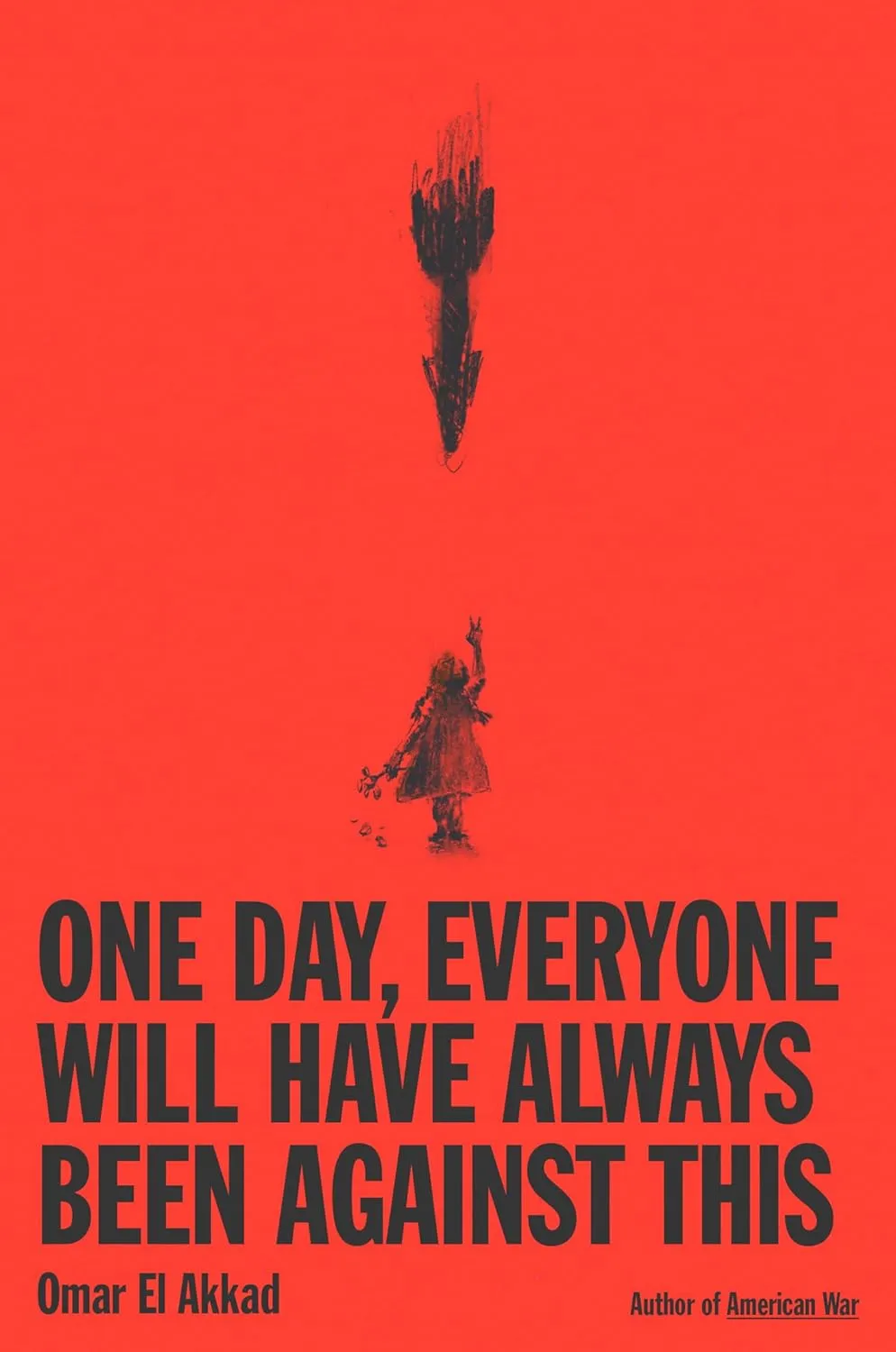Brian Dedora, The Apple in The Orchard
Brave, astonishing and unique: now that is exactly how I would describe Brian Dedora’s work.

It's so funny reading Ian Gibson's 2009 Lorca y el mundo gay because, in Gibson's book, the word “gay” appears more abundantly than in any of his previous biographies of Lorca, which is indicative of the taboo the Spanish government has imposed over Lorca’s outsized posthumous existence and Gibson's break with his previous works' virtually total and ostensibly diplomatic avoidance of the word.
Although Irish, Gibson, a citizen of Spain since 1984, writes in Spanish, which is another reason why his sensitivity and deliberate change in use of the term remains so noteworthy (if not noticeable) in this context, as though, as a biographer, he had to have his own kind of lexical coming out by titling his book this way, prominently featuring the international English word “gay” on the cover instead of resorting to anecdotal euphemisms and reported speech as in his previous works.
We can, at the very least, applaud his dedication to fully commit after a lifetime of writing on Lorca, all things considered.
The Lorca described therein, however, provides an ample, third-person perspective on the obvious influence of Lorca over Dedora's work, such as this anecdote illustrating Lorca's use of his neologism “Elepante”:
—¿Qué es «Don Elepente», poeta Federico?
—Un héroe mío, que yo he inventado.
—¿En dónde lo encontró usted?
—En todas partes, porque va de mi mano.
—¿Podemos esperar una «Vida y hechos de don Elepente»?
—Sí, desde luego...
Pero Federico García Lorca ha puesto una sonrisa significativa, que hace pensar que este «Elepente» irá siempre de su mano, pero sin pasar a engrosar su magnífica obra de poeta y de autor teatral.
Aquel verano, Carlos Morla Lynch recibió una carta de Lorca firmada «Don Elepente J. Federico», lo cual le debió de causar extrañeza. Un poco después el poeta le dijo que quería fundar un club «elepente». ¿De qué se trataba?
De una broma gay.
Lorca gozaba inventando palabras. Entre ellas se recuerdan chorpatélico, anfistora, pirulino, ronconquélico, pollancón («cojonudo») y, sobre todo, epente y epéntico, de las cuales fue prototipo don Elepente.
Pero ¿epéntico? El término no era del todo original y tenía una base real en el sustantivo epéntesis (del griego, «intercalar»), figura de dicción, según la Real Academia Española, «que consiste en añadir algún sonido dentro de un vocablo, como coránica por crónica y en tenderé por tendré», ello para facilitar su pronunciación. El mismo diccionario nos informa de la existencia de un adjetivo correspondiente: epentético.
Luis Sáenz de la Calzada ha recordado, en su insustituible libro sobre La Barraca, que Lorca decía que con la palabra epéntico se refería a «los que crean pero no procrean».
-What is “Don Elepente,” [García Lorca] Federico?
-A hero of mine, that I invented.
-How did you come across him?
-Everywhere, because he's of my hand.
-Can we expect a “Life and Deeds of Don Elepente”? [à la Don Quixote]
-Yes, of course...
But then Lorca cast a knowing smile, making us think that this “Elepente” will always go hand in hand with him, rather than appearing among his magnificent work as poet and playwright.
That summer, Carlos Morla Lynch received a letter from Lorca signed “Don Elepente J. Federico,” which must have caused him some surprise. A little while later, the poet told him he wanted to found an “elepente” club. What did he mean by that?
It was a gay joke.
Lorca enjoyed inventing words. Among them: chorpatélico (funny and meaningless), anfistora, pirulino (a paper-made toy gun, possibly an etymological innuendo for penis), ronconquélico [Gibson only, perhaps an adjectival amalgamation of rincón (corner) and conque (withal)], pollancón (big chick) and, above all, epente and epéntico, of which don Elepente was the prototype.
But epenthetical? The term was not entirely original and had a real basis in the noun epenthesis (from the Greek, “to intercalate”), a figure of speech, according to the Real Academia Española, “which consists of adding a sound within a word, as in coránica (Quranic) for crónica (chronic) and tenderé (I'll hand) for tendré” (I'll have), in order to facilitate its pronunciation. The same dictionary informs us of the existence of a corresponding adjective: epentético.
Luis Sáenz de la Calzada has recalled, in his irreplaceable book on La Barraca, that Lorca said that with the word epéntico he was referring to “those who create but do not procreate”.
Gibson goes on to cite José María García Carrillo, Lorca’s gran amigo gay, saying that the Greek meaning of the word epenthesis was an intentional malentendido, as a gay innuendo, because more so than being intercalation of a syllable within a word, it really stood for what he considered to be an insertion from behind.
In the same vein, reading Brian Dedora's The Apple in the Orchard (March, 2024, Guernica Editions), one line that readily springs to mind is when the narrator satirizes the conflict of Canadian national identity and masculinities in a poem titled “Not So Strong and Free” (p37):
[...] in the glowing eyes of red embers imagine the invention of marshmallows, wieners, hot dogs, with which you berate yourself for their jiggery pokery, their nighttime insistence, until with sly looks and shy glances you assess the possibilities of an infringement, a little touch-up, a bushwhack, and with another half-day trek, come upon, blessedly, Airstream trailers circled round a firepit where roasts entrecôte de buffalo with bowls of pemmican set aside and slavering, mouth watering, stomach grumbling, hastily run to the movable feast before it moves, with humble apology for your complete lack of manners, until satiated, belly full, you burp and belch into a gratified yet dreamful stupor nor heedless of the impure demands beginning to well in the interstices, synapses, tingling bits, and gush of blood flow in spongiform parts and a pitter-patter of tiny deer feet turning goat-footed... a provisioning of victuals for the back country... (“Oh no, not the back country!”)
There is something so uniquely delightful in Dedora's work, that he leans in at every opportunity into innuendo, double entendre, rebelliously juvenile and deliciously camp, in that special sort of Church Street way that says with a burlesque smirk “clutch those pearls baby,” toeing the line between salaciously improprietous and sarcastically puritanical.
Every time I have a book to review, I undergo an existential crisis, akin to a subconscious catechism—what if I'm wrong? what if I don't say anything of value? what if I missed something! what if I'm a bore!
Fortunately, that pathology is not so much a problem when it comes to Brian Dedora's APPLE, whose interview with Open Book prior to its publication serves as a sort of skeleton key, and, although it is unfortunately my first time reading him, Dedora’s work readily shelves itself between Steve Venright's Floors of Enduring Beauty and Jean-Paul Daoust's Les cendres bleues—acerbic, farcical, brilliant, and deeply, oh so deeply Canadian.
Dedora’s book is a testament to the lifelong venture on the part of editor Stuart Ross to bring to light voices of 20ᵗʰ century Canadian literature and give us gifts that any other country's canon would be envious of, incapable of being ignored: David W. McFadden, Nelson Ball, Michael Dennis, each of whom had been writing and publishing for decades; a neat, tidy, palm-sized list of revived giants, to which, and to Ross’s undeniable credit, Brian Dedora can now be added.
Reviewing experimental literature to me is as daunting as it is inscrutable—imagine I were to put my money where my mouth is and give an honest crack at reviewing one of my favourite author’s magnus opus, Finnegans Wake, and take all the fun out of it in the process? I don't think I'd be up to the challenge. Luckily, nobody has ever put it to me; writing about Stuart Ross is hard enough.
Talking about books in general might seem easy in the post-blog age of booktok, booktube, and bookfluencers, but, not only is saying something worth saying infinitely harder than just yapping for the algorithm—the better the work, the harder it is to say something about it, or say anything well at all—whereas saying something bad about a bad book is… well? Why even bother?
I'll say this much—for the number of serious topics Apple addresses across roughly two dozen vignettes, there's no way this narrative was going to have a happy ending.
And it’s not lost on me that vignettes must be the most natural narrative form for a master gilder (pun not intended).
Although the wordplay and sui generis-ness is humorous at times, in the context of this main character we are peeling back the layers of the onion on, the flashbacks come across immediately as a projection of this protagonist’s inner coping, so the puns and punchlines can be appreciated almost extrinsically to the story unfolding.
In another word, yes, Dedora is funny, and the influence of Lorca from translation of his work (Lorcation, 2015, Book*Hug Press) palpable, but there is so much more going on here from behind the lines...
So you have chosen heterosexuality.
So be it.
(O butch it up, Mary, of course I include gay readers.)
There are so many points of stylistic and thematic foreshadowing in Dedora’s previous work in literary experimentation such as his A Few Sharp Sticks, it goes beyond the scope of this review; but there is another queer Canadian writer whose words ring salient in the context of Dedora’s experimental fiction, Alberto Manguel, in the introduction to his erotic anthology The Gates of Paradise:
When a couple of years later [after reading Apuleius's Psyche and Eros fable, Forever Amber, Peyton Place, and “in certain poems of García Lorca”], I was able to compare my readings to the actual sensation of my hand brushing for the first time over a lover's body, I had to admit that, for once, literature had fallen short. And yet, the thrill of those forbidden pages remained. The panting adjectives, the brazen verbs were perhaps not useful to describe my own confused emotions, but they conveyed to me, then and there, something brave and astonishing and unique.
Brave, astonishing and unique: now that is exactly how I would describe Brian Dedora’s work.
Bibelotages Newsletter
Join the newsletter to receive the latest updates in your inbox.



